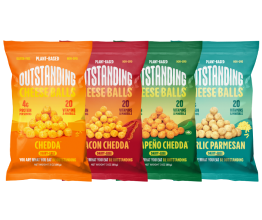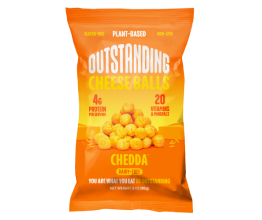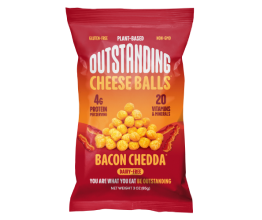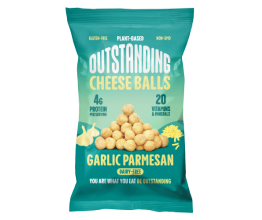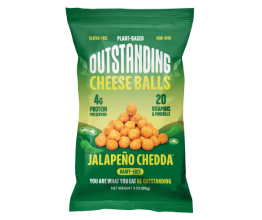Which Nuts Are Highest in Protein, Minerals & Other Essential Nutrients?
When it comes to which nuts are highest in protein and other essential nutrients, it’s hard to pick just one. Nuts are crunchy and flavorful and even come in their own all-natural, biodegradable packaging. It’s not hard to see why so many people are… NUTS about them (okay, we got the obligatory nut pun out of the way).
But not all nuts are created equal. While many provide health benefits, others are best consumed in moderation. To make sure you’re snacking on the kind that suits your health needs, we need to look at the good and the bad that nuts contain.
So, which nuts are highest in protein, and which ones give you the biggest nut-ritional (sorry, we couldn’t resist) bang for your buck? Read on to find out.
Which Nuts Are Highest in Protein?
Protein plays a role in every area of health, from immunity to muscle growth. Plus, the higher in protein a food is, the more it fills you up, which is kind of the point. Most nuts have a solid amount of protein, but peanuts contain an outstanding 38 grams per cup, followed closely by almonds, with 28 grams per cup, according to Healthline.
Pistachios deserve an honorable mention, too, because in addition to 24 grams of protein per cup, they provide a complete protein, meaning they contain all nine amino acids you need to eat. This is especially beneficial for those who follow a plant-based diet, since most plant foods contain incomplete proteins.
Which Minerals Are Nuts High In?
In addition to which nuts are highest in protein, it’s important to know which ones are rich in minerals that boost energy and promote overall health. Here’s what popular nut varieties have to offer in terms of minerals.
— Iron. Pistachios are full of iron — which is responsible for energy production making them a great snack if you’re feeling low in energy.
— Zinc. Cashews contain 3 milligrams of zinc per 50 grams. According to WebMD, zinc is responsible for “cell division, immune function, wound healing,” among other things.
— Calcium. According to Harvard Health, almonds are particularly rich in calcium, which benefits your bones, muscles, and body tissue.
— Magnesium. Almonds and cashews contain healthy amounts of magnesium, according to WebMD. Magnesium can help headaches, act as a laxative, and, among other benefits.
— Selenium. Brazil nuts are a great source of selenium, which plays a vital role in repairing damaged cells. Beware, though: Studies show that just six to eight Brazil nuts contain over 900% of your daily recommended intake of selenium, so don’t eat more than one to three nuts per day (talk about impulse control!).
Keep in mind that despite the benefits of nuts, there is such a thing as too much of a good thing.
What Are Other Benefits of Eating Nuts?
On top of knowing which nuts are highest in protein and minerals, you should know that nuts have other health benefits. Because they contain so much protein and fat, they help you stay satisfied for longer, which is especially important for people following a plant-based diet who don’t get their protein from meat.
Also, according to Mayo Clinic, most nuts are full of heart-healthy fats. Walnuts, in particular, contain high doses of omega-3 fatty acids, which reduce the risk of heart attacks and strokes, while almonds and cashews help lower blood pressure. That said, nuts have their drawbacks, too.
What Are Some Drawbacks to Eating Nuts?
As great as nuts are,
In other words, don’t go nuts (last one, we swear) with your nut consumption. For one thing, nuts are high in calories. Like, really high. A ½ cup serving of peanuts, for example, contains as many calories as a Big Mac.
Peanuts aren’t even the worst offenders: Macadamia nuts and pecans both contain nearly 700 calories per ½ cup! And while most of the fat in nuts is of the heart-healthy variety, some (like Brazil nuts) are high in saturated fats. Too much saturated fat increases the risk of heart attacks and strokes.
There’s also the issue of how nuts are prepared. Most of what you buy at the store has tons of added salt — which makes them more palatable and therefore easier to overeat. Too much sodium can also lead to high blood pressure and make you really thirsty (making you way more likely to chug that two-liter bottle of soda).
Unfortunately, sugar-coated and chocolate-dipped nuts don’t count as healthy, either (darn!). They’re technically candy, and like all candy, they’re best eaten as an occasional treat rather than an everyday snack.
What Are Some Other Healthy, Savory Snacks?
Just because you can’t binge on salty nuts doesn’t mean you’re forced to follow a diet of carrot sticks and celery to be healthy. You can still keep track of which nuts are highest in protein, minerals, and good fats to snack on occasionally.
And you know what else you can snack on every day that’s both tasty AND good for you? Outstanding Foods snacks! Our Puffs, Pig Out Crunchies, and dairy-free Cheese Balls are all high in protein, loaded with essential vitamins and minerals, and low in fat, so you can rest assured you’re getting all the nutrients you need.
Visit our online store today to get yourself a stash of healthy, guilt-free hunger killers.
